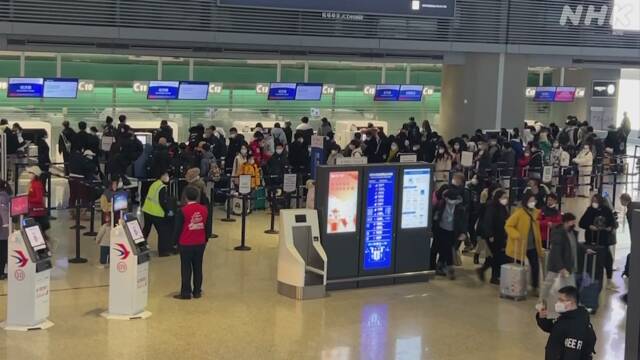In China, the Lunar New Year holidays began on the 21st.
It will be the first long holiday since the Chinese government ended the "zero corona" policy, which thoroughly suppresses the spread of the new coronavirus, and it is expected that the number of people returning to their hometowns and traveling during the period around the Lunar New Year will be nearly double that of last year. increase.
In China, where the New Year is celebrated according to the lunar calendar, a long holiday of seven days began on the 21st to coincide with the Lunar New Year on the 22nd, and many people were seen heading to their hometowns and sightseeing spots at the airport in Shanghai.
Of these, a 35-year-old man who plans to go to a resort in the south with his family and friends said, ``I haven't traveled to another city for nearly two years. I was.
A 45-year-old Japanese man living in Shanghai with his wife and 5-year-old daughter also said, "I've been living under lockdown and isolation policies for a long time, so this is the first time I've traveled. I'm worried about infection, but my family I would like to spend a relaxing time with you," he said.
This year's Lunar New Year will be the first long holiday since the Chinese government ended the "zero corona" policy, and since the strict restrictions on movement have been removed, the number of people traveling within the country during the 40 days before and after the Lunar New Year was 2 last year. It is expected to double to nearly 2.1 billion people.
On the other hand, Chinese tourists to Japan are not expected to increase significantly during the Lunar New Year period as the Chinese government continues to restrict tourist travel to Japan.

